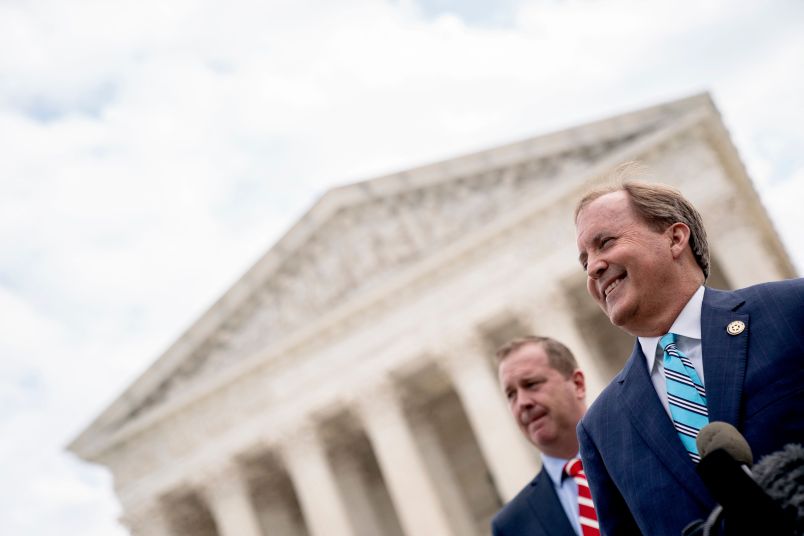As of this week, the Biden administration has two blossoming legal disputes with Texas, both of which may end up before a hostile Supreme Court and both of which deal with issues core to federalism in the U.S.
Ultimately, if the High Court chooses to take up one or both issues, the cases could yield new precedent, allowing state law enforcement regimes aimed at apprehending undocumented immigrants — an area previously left to the feds.
As TPM chronicled last year, Texas’ various immigration laws and policies had, in fact, been designed explicitly for the purpose of inviting such a court ruling.
On Tuesday, the Biden administration asked the Supreme Court to allow Border Patrol agents to cut razor wire that the state had set up along the border as part of Gov. Greg Abbott’s Operation Lone Star. And on Wednesday, the Biden administration sued the state in federal district court over its new immigration law, signed by Abbott last month, that gives local law enforcement the authority to arrest migrants.
Both represent a possible pathway to a longstanding goal of many on the right, including Texas Attorney General Ken Paxton and Texas legislators: Getting the Supreme Court to revisit its decision in Arizona v. U.S., a 2012 ruling in which the Court sided with the Obama administration and struck down part of an Arizona law that made it a criminal offense for non-citizens to be in the state without documentation. The court found that the law violated the Supremacy Clause of the Constitution, and that the federal government has the sole power to enforce immigration law.
Border-state right-wingers have been smarting at the ruling since then, giving life to a series of efforts by both the Texas governor and the state legislature to reopen a settled question. The new Texas law the Biden administration sued over, SB4, is seen by many (and celebrated on the right) as a direct descendent of the Arizona law, SB 1070.
In a Texas state Senate hearing last Spring that TPM’s Josh Kovensky covered, Paxton was explicit about his motivation: “I’ve been saying for two years, we should test U.S. v. Arizona,” he told legislators.
Paxton felt that, as with abortion, the court’s new make-up would inevitably yield a different result.
“We’ve got a different court,” he said at another point in the hearing. “We’ve got the best chance we’ve ever had to overturn that and give the states the ability to protect their citizens.”
The Best Of TPM Today
Trump’s SCOTUS Request Chose To Open A Pandora’s Box That Could Have Stayed Shut
The 5th Circuit Will Not Have The Last Word On Abortion In Emergency Rooms
Trump Continues To Test The Constitution’s Limits
Yesterday’s Most-Read Story
The New Argument That Might Save Trump’s March Trial Date
What We Are Reading
Leonard Leo, architect of conservative Supreme Court, takes on wider culture — National Catholic Reporter
My Unraveling: I had my health. I had a job. And then, abruptly, I didn’t. — New York Magazine
Chief Justice John Roberts’ AI Report Reads Like an Old Robot Wrote It — Daily Beast
The Presidential Race at the Dawn of a New Year — Sabato’s Crystal Ball







And along with it the cost will go directly to TX.
Since when do states’ rights take precedence over our national Constitution and Federal laws? Certainly not since the Civil War and the 14th Amendment.
This Court is not a normal Court.
Which will then sue to force reimbursement because “The Federal Government abandoned their responsibility to protect the border and we (Texas) would not have had this expense otherwise.”
But you go to court with the judges you have, not the ones you wish you had. That’s the problem here.
The Right has been trying to wrest control of the narrative in the Federal government for decades. They now have all the pieces in place. A couple of well-placed decisions in their favor and the pendulum will have completed its swing from Liberalism to Conservatism. It could be another 30, 40 or 50 years before it swings back again.